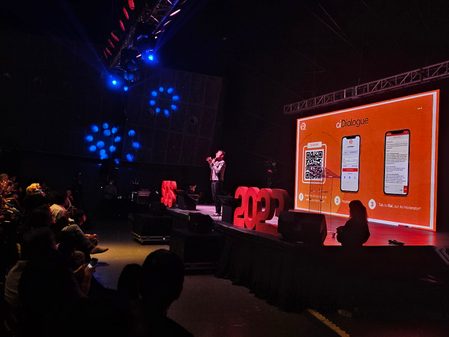SUMMARY
This is AI generated summarization, which may have errors. For context, always refer to the full article.
![[New School] Liberation and restriction: AI in communication and development](https://www.rappler.com/tachyon/2023/09/ns-artificial-intelligence.jpg)
If there is one thing that I constantly kept in mind during my first two years in college, it’s that communication always has a purpose. In my case in the field of Development Communication, its objective is to foster participatory development among specific, marginalized communities to help them make informed and better decisions.
This objective is the very reason why countless questions were running through my mind when I attended Rappler’s Social Good Summit 2023, where an esteemed roster of speakers, including Maria Ressa herself, conversed about all things technology and artificial intelligence (AI) and its supposed role in our society.
Among some similar and clashing perspectives of the experts, one argument was consistent among them all: AI is here to stay. It’s inevitable; it’s unavoidable.
It got me thinking, however, that the very existence of technology already poses a digital divide that obstructs the process of communication among certain communities, therefore, defeating its purpose.
So, where does AI fit in the communication process?
Recognizing privileges
Before establishing a notion that puts AI on a pedestal, we must first acknowledge the privilege that we have compared to that of other communities.
The Philippines alone is home to various indigenous groups. Some of these groups have not been infiltrated by big technology companies, but that is not to say that they don’t use technology at all.
Moreover, the poverty crisis experienced by our nation is still as prevalent as ever. This leads to other marginalized communities not having the same access as others to opportunities like technology.
Given these examples, it’s safe to say that AI is inaccessible to these groups of people. This classic scenario of a digital divide between technologically-oriented people and those who don’t have access to technologies at all further creates a communication gap that detrimentally affects the latter’s development process.
This gap displays the lack of attention given to the communities who need it the most, giving the utmost priority to making the lives of privileged people easier and more convenient by improving the state of the technology they are using, such as endorsing the use of AI.
While non-government organizations that cater to underrepresented groups, and even development communicators in practice, can help those in the margins to foster growth and development in their communities, it’s not enough compared to the collective effort of everyone, including the private sector and the government.
Regulating AI for all the right reasons
One of the key points presented by a few of the speakers is that the use of AI should be regulated to prevent it from harvesting our data and posing a threat to democracy.
While these reasons are absolutely valid, they shouldn’t only go that far. AI should be regulated as well to ensure that no one is left behind. This regulation should go as far as making sure that indigenous groups and marginalized communities also benefit from the same contributions that technology and AI pose.
Better yet, AI should be regulated to make sure that it won’t be a barrier to communication between these communities, instead bridging the gap technology has created and making sure that the benefits of AI apply to everyone, without compromising culture and tradition.
This process of regulating AI is also a job for the big players in the industry such as corporations and the government, as they are the key players with the power and resources to make sure that AI does not impose underdevelopment onto the margins.
While it’s arguably true that AI is here to stay, it doesn’t mean that we should just embrace it wholeheartedly. We must still approach and use it with caution, and find new ways for it to be utilized for the development of everyone. – Rappler.com
Neil Andrew Tallayo, 19, is a sophomore Development Communication student at the University of the Philippines Los Baños. He is also an Associate Managing Editor in their college’s student publication, Tanglaw.
Add a comment
How does this make you feel?

There are no comments yet. Add your comment to start the conversation.